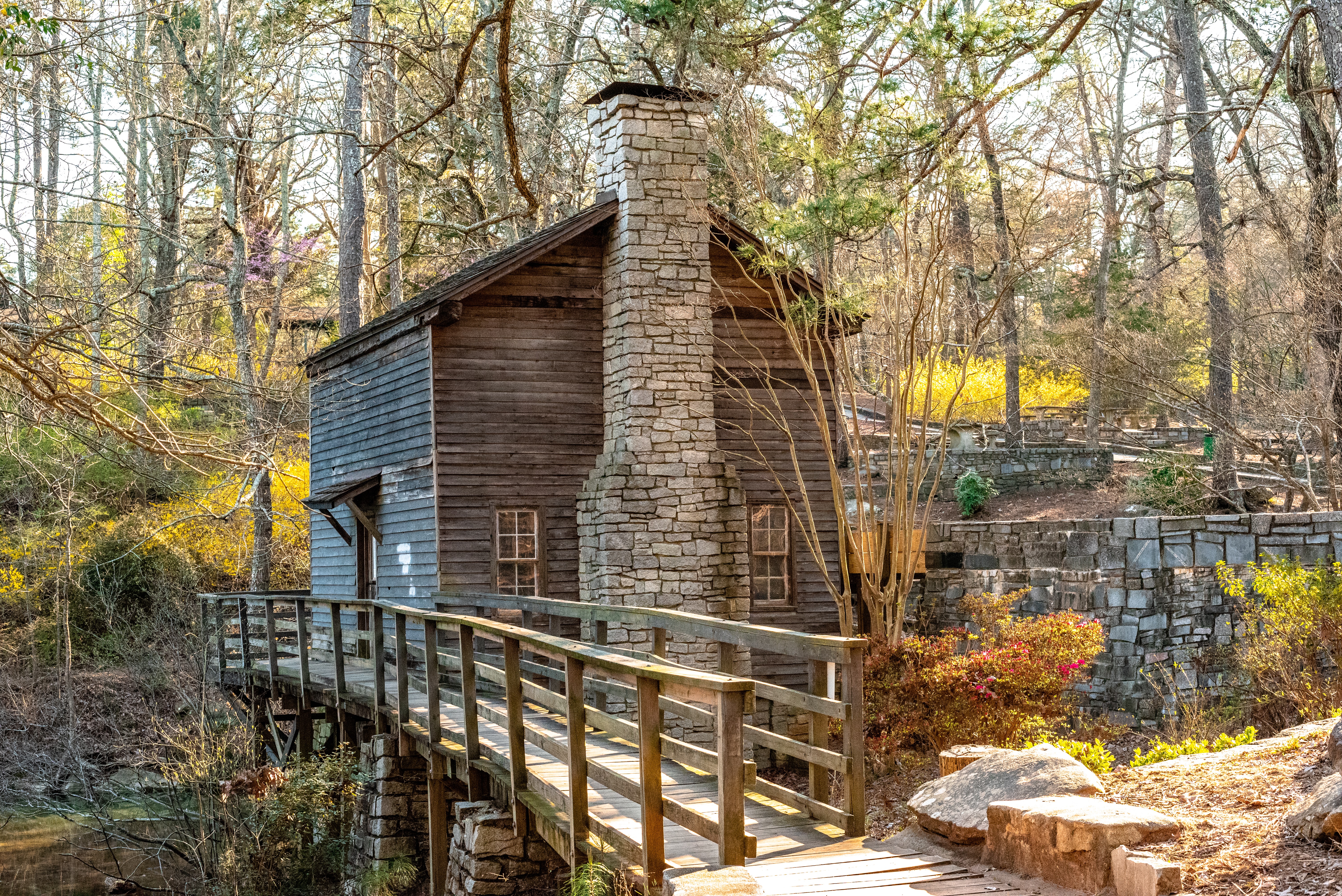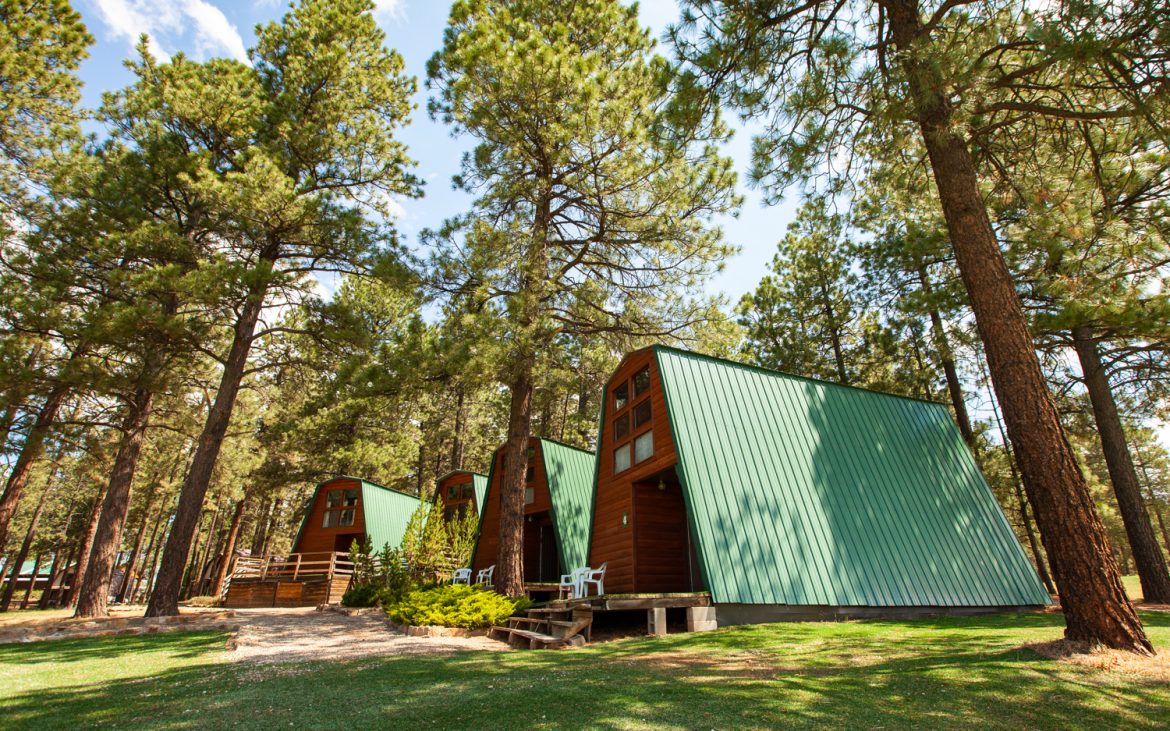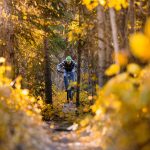A cabin in the woods can have an eerie feel to it at first. But cabin camping can be the most enjoyable experience you’ll experience, especially for kids. If you can imagine a really old, rustic-looking cabin that you’ll most likely see in camping magazines, it likely gives off an old-fashioned house vibe but still has that homely feel to it. Cabins are the perfect family getaway, especially during unexpected inclement weather. For new cabin campers, we’ve put together this ultimate beginner’s guide.
Benefits of Cabin Camping
For beginners, cabin camping may be a bit more of an investment than bringing your trusty ol’ tent and camping closer to nature. But cabins can give offer more benefits. If you want you and your family to camp more safely and more comfortably, then cabins would be the way to go.
- Less time-consuming: It may not be the most enjoyable experience to struggle to put up a tent or blow up air mattresses for everyone. By comparison, cabins are a better choice during such struggles. Just open the door, clean a bit, and figure out where to drop your bags and you’re all set.
- Cabins usually have amenities: If you or your family think that camping in a tent near the wilderness is a little too close for comfort, cabins can give you the best of both worlds. Most cabins have indoor plumbing, furniture for your use, and electricity. There may be some bugs here and there, but at least you’ll be able to see them when they come.
- Inclement weather? No worries. Some people love going out hiking or fishing on a rainy day, but at night, you want a warm and cozy place to sleep in. If you’re in a tent, this wouldn’t be possible. With a cabin, however, you won’t need to worry.
You should decide what kind of cabin camping you want your family to experience. There are low-cost, off-the-grid cabins or some that are fully-equipped with a flush toilet and electricity. Be mindful that when camping in the backcountry, most options will likely be completely off-grid.
People might brush off cabin camping as “glamping,” that is, luxury camping where you don’t necessarily deal with trivial stuff such as bringing linens, full-on amenities, and the like. There could even be a person who’d cook for you. But that is not the case with cabins. As mentioned earlier, some are off-the-grid, and you’d be lucky to have a flush toilet.
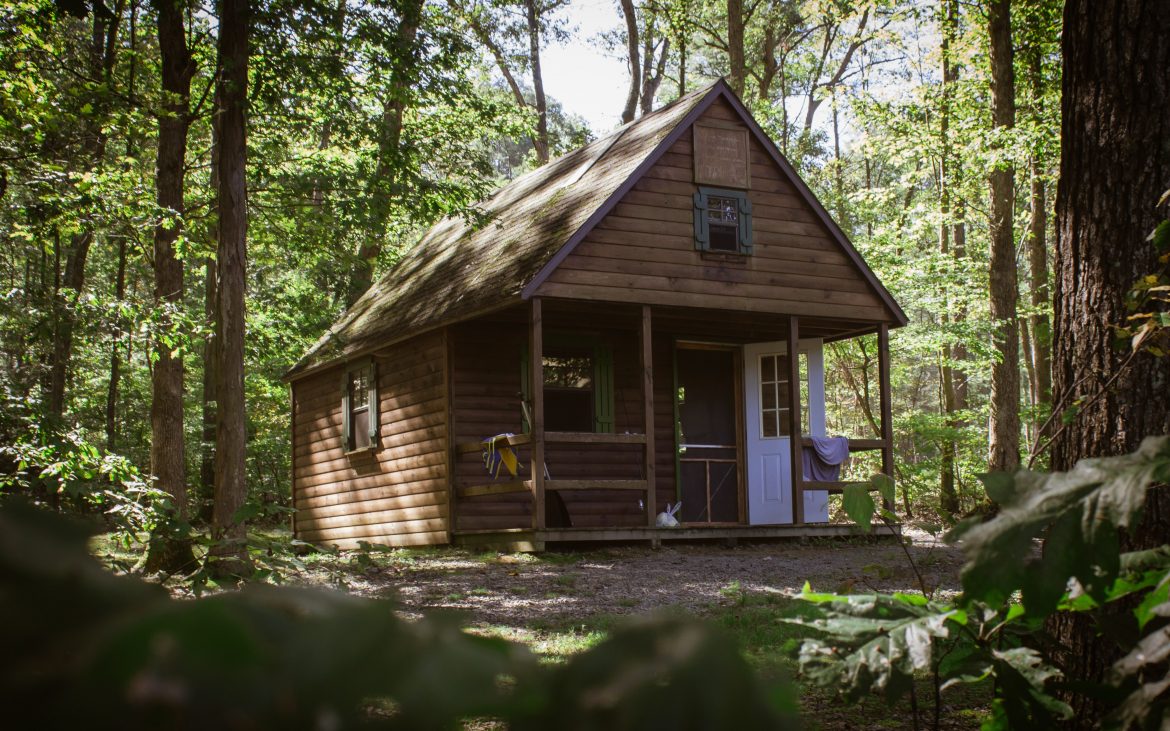
Fall camping in Pennsylvania, Lake Heron. Photo Credit: Unsplash, Ryan Stone
Where to Rent
There are tons of choices on cabins you can rent. Do you want to stay close to home or be more adventurous and take a cross-country trip? Do you want to try cabins that are quite popular with campers, or would you prefer a quaint, quiet, and unique experience for your first cabin camping trip? You can easily find more cabin rentals through the National Parks, State Parks, and The US Forestry Service, which could range from fully-equipped cabins to ones that have shared bathrooms.
Tips for Booking
With the number of options that are available, it may get a bit overwhelming for you. One thing to take into consideration is making sure that you choose a campground where the activities you want to do is readily available. For example, you should choose a campground that is close to a lake if fishing and swimming are activities you enjoy. There are cabins close to hiking trails as well if this is something you and your family like.
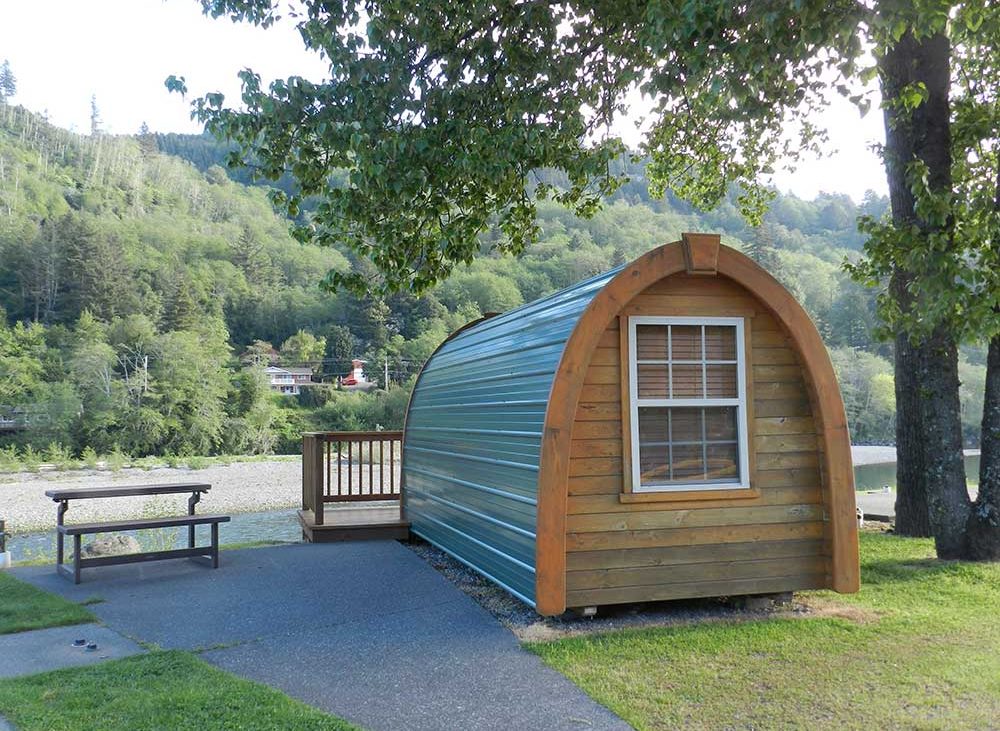
AtRivers Edge RV Resort is a Good Sam park in Brookings, Oregon. Photo Credit: AtRivers Edge RV Resort
There are also online cabin reviews that you can check before booking. Most reviews are about the maintenance and cleanliness of the cabins. Keep in mind that even if the cabin is off the grid, it should always be kept clean, especially the bathroom and kitchen.
Cabin Camping Prep
As for any camping trip, make sure to gather all the needed gear and equipment you will need for the trip. Upon checking the amenities available on-site, you’ll have an idea of what else you need to pack. For hygiene purposes, bringing your own bedding and towels will be safer.
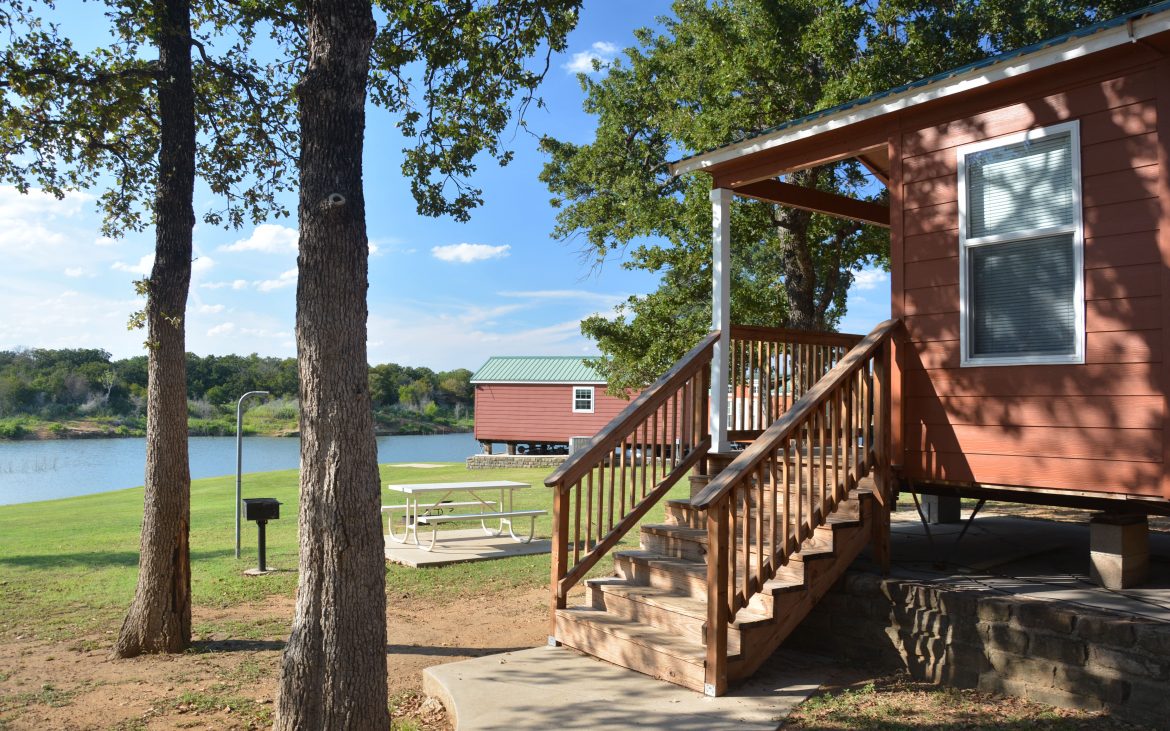
The Vineyards Campground & Cabins is a Good Sam park in Grapevine, Texas. Photo Credit: The Vineyards Campground & Cabins
Plan your menu beforehand. Ready-to-BBQ meals are must-haves, as well as meals that you can easily cook on the stove (if available). Some campgrounds have food available to purchase, but home-cooked food is a still a good idea.
Plan your itinerary. You can check the types of activities and events happening in the local area and on the campground. Be prepared for inclement weather and pack your clothes accordingly.
Once on-site, make sure that you keep both outdoor and indoor spaces tidy and clean. Any garbage left outside can easily attract wildlife. You don’t want any bears knocking on your door at night, right? Always keep personal hygiene in mind at all times, especially when preparing food.

